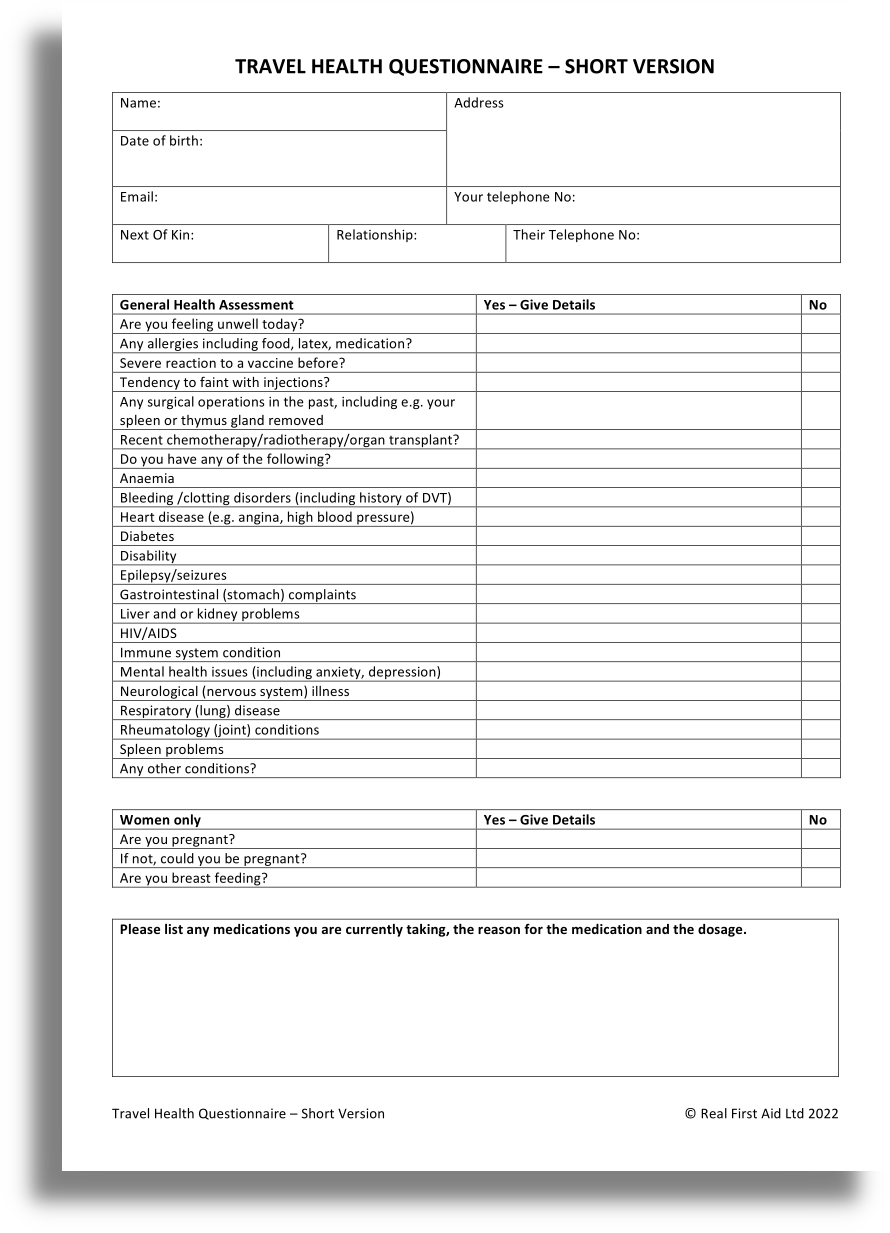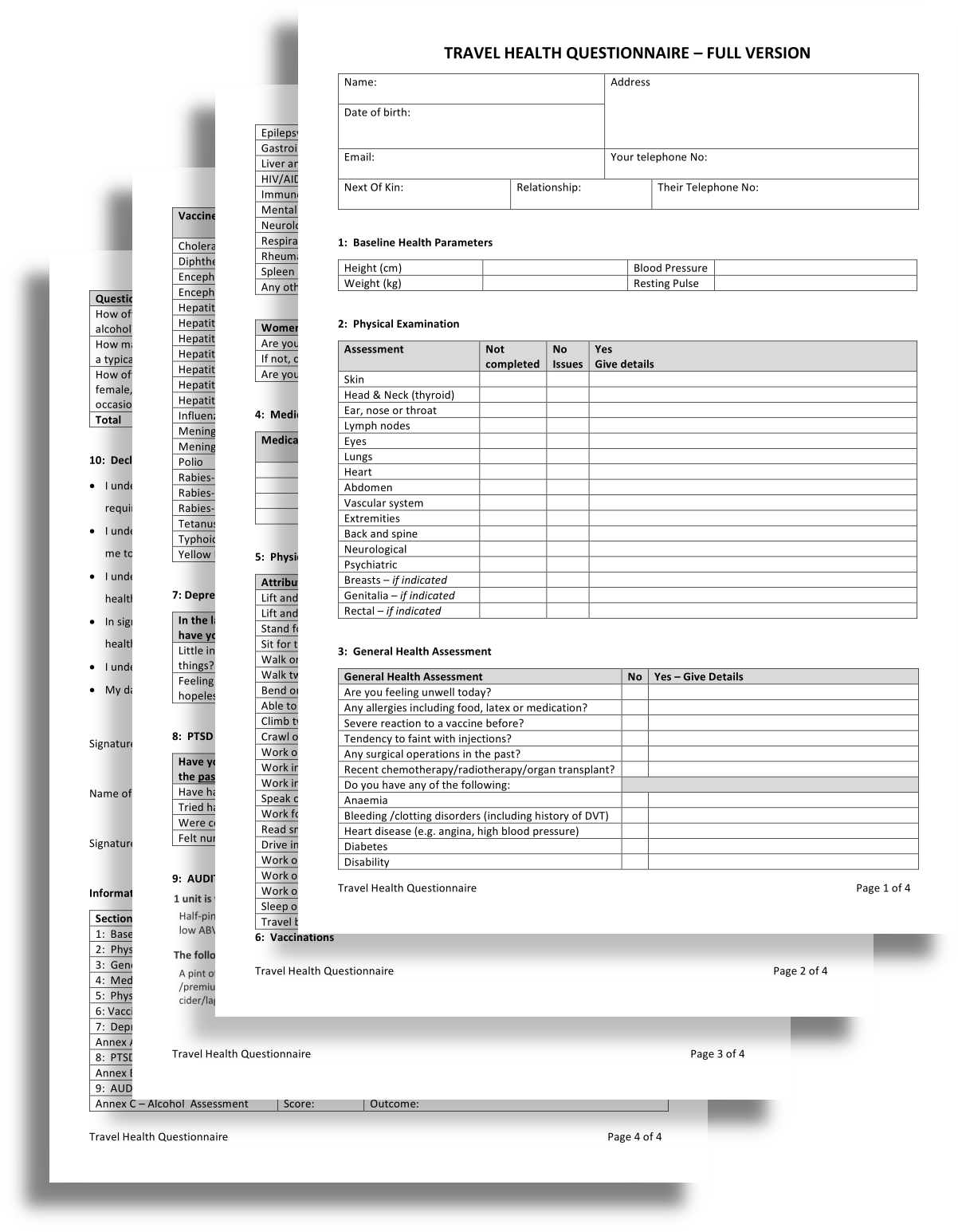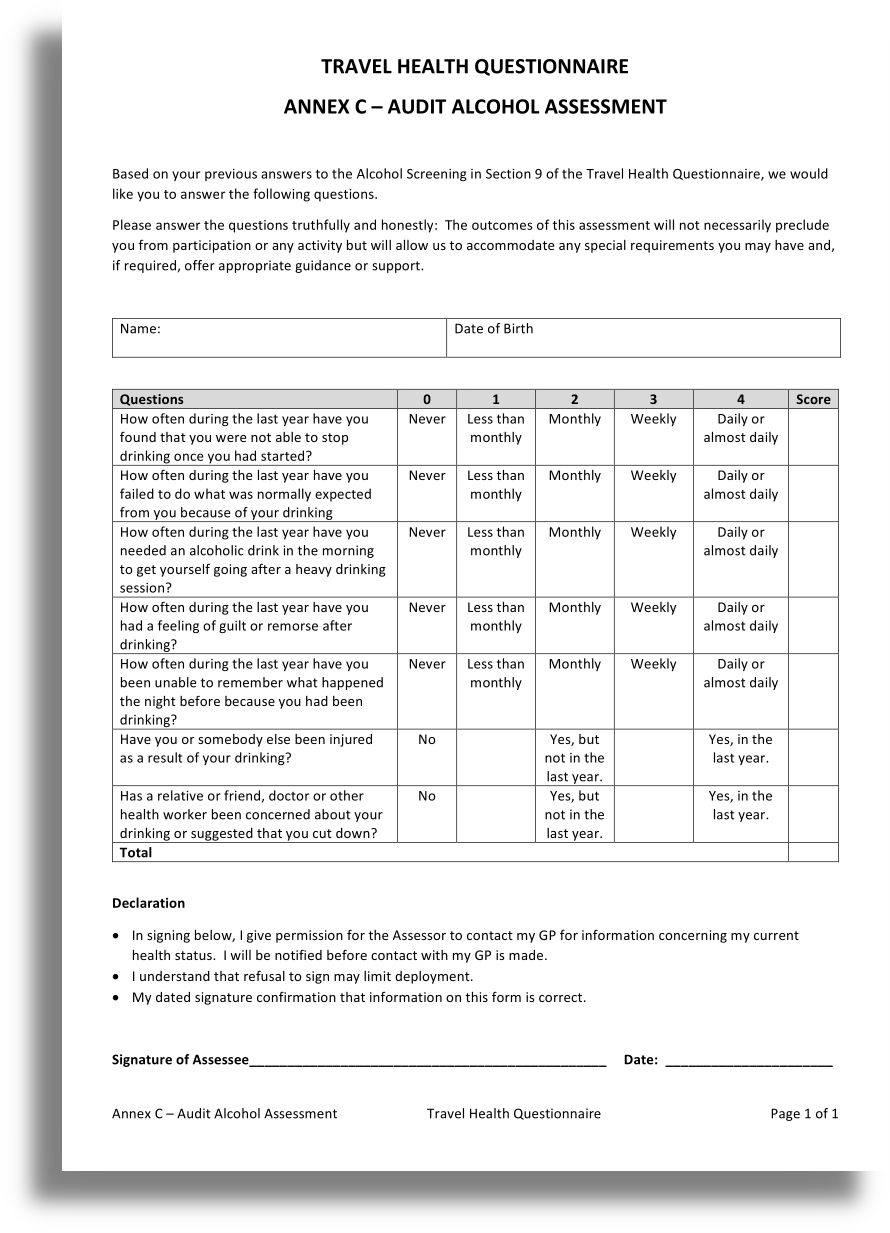Travel Health Assessment
27th August 2022
Travel Health Questionnaires are not designed to preclude participants from activities (although they can be if the Risk Assessment deems appropriate) but rather to understand the needs of those in your care. Understanding the allergies, medications and medical history of those you are responsible for allows you to cater to their needs and treat them appropriately. It also allows a singular form to be handed over to the next level of care should an incident occur.
The process also allows a face-to-face conversation with each individual and affords them private space to disclose anything they would not otherwise be prepared to disclose publicly or for them to air any questions or concerns prior to deployment.
And finally, it is their first impression of you as the medic - it is your opportunity to make that good first impression, start an open dialogue, build trust and develop a rapport.
Further reasons for Travel Health Assessments:
Gather baseline health parameters for individuals - what is normal for them?
Identify individuals with health concerns that need to be addressed.
Identify individuals with specific needs or limitations, whose activities may need to be restricted or modified.
Identify individuals who are not fit for anticipated tasks.
Identify medications being taken, the side effects of such medications that may affect or be affected by deployment and the legalities of travelling with those medications.
Identify immunization or other preventive needs - this should be linked to your Travel Risk Assessment.
Identify training and education needs.
What should be asked?
The specific types of information gathered should be based on anticipated work characteristics and deployment location; however, the following elements should be considered:
Personal information.
Identifying and Contact Information.
Name, address and telephone numbers.
Age, date of birth and gender
Contact information for someone who will know where the worker is 6 months after returning home.
Primary language
Health status
Pre-existing medical and mental health conditions
Relevant lifestyle factors (e.g., smoking status, exercise habits)
Symptoms currently experienced
Medications and side effects
Other specific risk factors (dependent upon expected tasks, e.g., use of personal protective equipment, exposures, climate.)
Immunization status: routine adult and any special risk (e.g., health care worker, location, task-specific risk assessment.)
Pregnancy status
Risk Factors
Substance misuse (including alcohol)
PTSD
Depression
Follow-up to screening/outcomes
Examples
The following examples are available as editable Word documents to download for previous candidates of our First Person on Scene - International courses. They are not designed to be specific or comprehensive but, rather, serve as a basis for developing Travel Health Assessments specific to your own or your organisation’s requirements.
Travel Health Questionnaire - Short Verison
A brief questionnaire for low risk/ hazard activities.
Travel Health Questionnaire - Full Version
A more detail questionniare for higher risk / hazard activities and longer duration deployments.
THQ - Information for Assessors
Information to support Assessors in the completion and protocols for the Travel Health Questionnaire Annexes.
THQ Annex A - Beck Depression Inventory
An assesment tool for Depression
THQ Annex B - PCL-5 Assessment
An assessment tool for PTSD
THQ Annex C - AUDIT Alcohol Screening Tool
An assessment tool for Alcohol usage
Further Resources
This document provides guidance on medical screening for workers before deployment to disaster response activities.
Department of Defense Deployment Health Clinical Center - Form DD 2795
The Pre-deployment Health Assessment Form (DD 2795) is a required form that allows military personnel to record information about their general health and share any concerns they have before deployment. It also helps healthcare providers identify issues and provide medical care before, during, and after deployment.
USCG Medical Manual CIM 6000.1C
This is a very comprehensive program aimed to cover all operations of USCG Personnel, ranging from air crewmen and marine vessel inspectors to pollution and emergency responders.
There is a basic form that all personnel fill out, and then, for each specific hazard to which the member may be exposed, there is a form geared specifically for those hazards (e.g., asbestos, benzene, noise).
OSHA Respirator Medical Evaluation Questionnaire
https://www.osha.gov/laws-regs/regulations/standardnumber/1910/1910.134AppC
The above link is where one can find the OSHA Respirator Medical Evaluation Questionnaire, which is contained in Appendix C of OSHA standard 1910.134 Personal Protective Equipment.






